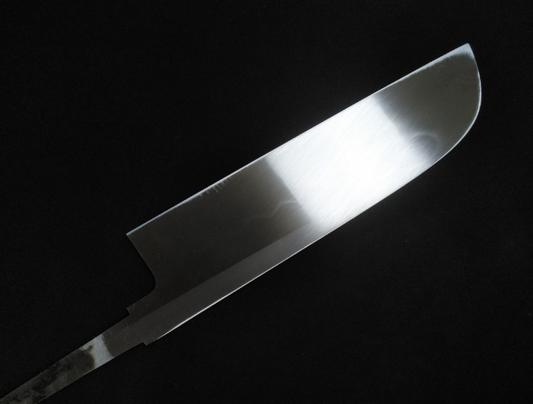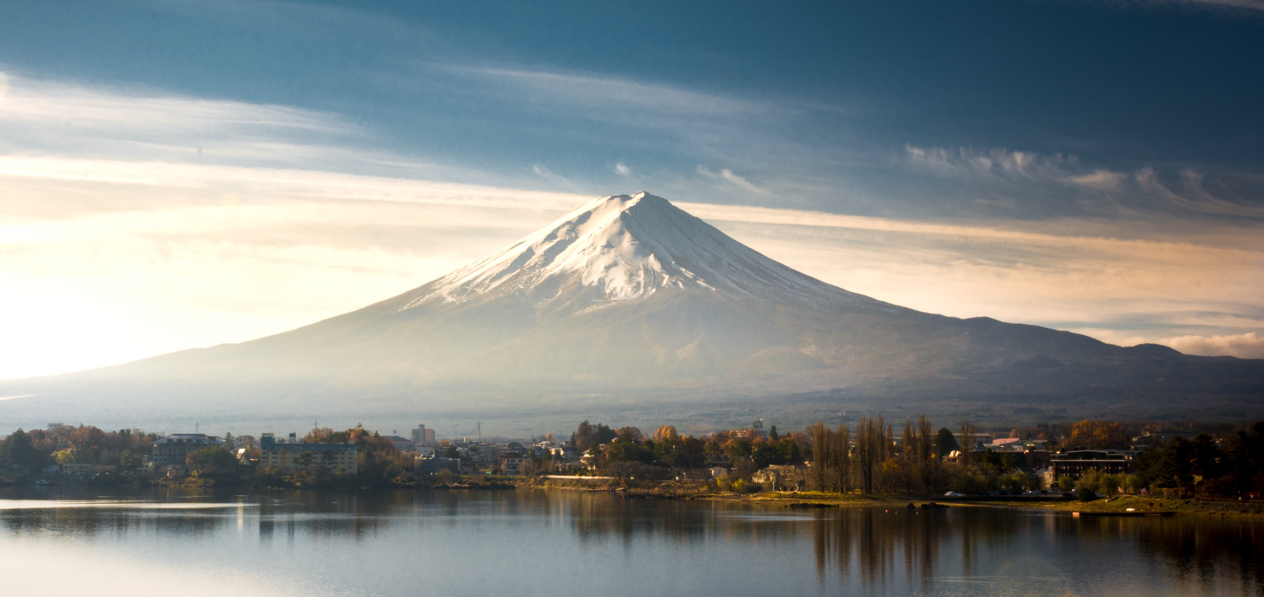
Shotaro Nomura
-
Over 60 years of sharpening mastery — A single edge, refined to perfection.
In Sakai City, where over 600 years of knife-making tradition thrives, Shotaro Nomura has spent more than six decades perfecting the art of sharpening. Recognized as a Traditional Craftsman in 1988, Nomura’s knives are renowned for their lasting beauty and unmatched performance. Guided by his mentor’s philosophy, he continues to create blades that embody both heritage and innovation, captivating chefs in Japan and around the world.
-
Sakai Traditional Craftsman Collection: Shotaro Nomura
-
White Steel #2 (Honyaki-Aburayaki) Kamausuba 225mm-Mirror Polished(one side)
Regular price $900.00 CADRegular priceUnit price / per$380.00 CADSale price $900.00 CADSold out
Shotaro Nomura – The Craftsmanship and Beauty of Sakai Knives
-

A Lifetime of Dedication
With over 60 years of experience, Shotaro Nomura is one of Sakai City’s most respected master sharpeners. Trained under the legendary Mr. Ino during the Showa era, Nomura has perfected the art of creating “Uwamono”—exceptional knives favored by head chefs.
-
Certified Traditional Craftsman
Recognized as a Traditional Craftsman in 1988, Nomura is among the few sharpeners to hold this prestigious title, reflecting his role as a guardian of Sakai’s centuries-old knife-making tradition.
-
Unique Sharpening Philosophy
Guided by his mentor’s belief, “Even if it’s just one, make it a masterpiece,” Nomura’s knives not only shine from the start but continue to reveal their excellence with every use—offering chefs a lifelong companion in the kitchen.
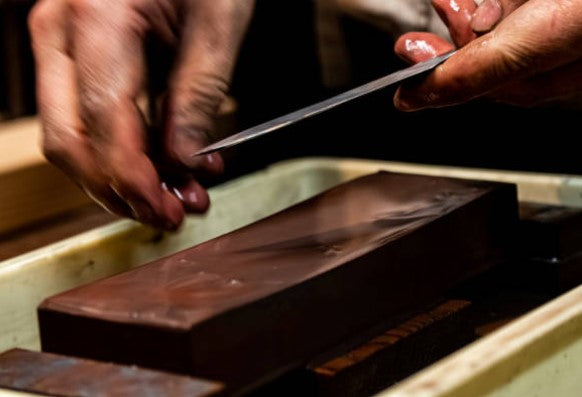
Shotaro Nomura
The Craftsmanship and Beauty of Sakai Knives
- Started his career in 1962 and was certified as a Traditional Craftsman in 1988.
- Mr. Nomura trained at the well-known Ino Hamono in Sakai City, where he dedicated himself to mastering the art of sharpening. Over the years, he has become a steadfast guardian of Sakai's tradition, carrying forward techniques passed down through generations.
KIREAJI's Three Promises to You
-

1. Forged in the Legacy of Sakai
From Sakai City—Japan’s renowned birthplace of professional kitchen knives—each blade is crafted by master artisans with over six centuries of tradition. Perfectly balanced, enduringly sharp, and exquisitely finished, every cut carries the soul of true craftsmanship.
-

2. Thoughtful Care for Everyday Use
Every knife includes a hand-fitted magnolia saya for safe storage. Upon request, we offer a complimentary Honbazuke final hand sharpening—giving you a precise, ready-to-use edge from day one.
-

3. A Partnership for a Lifetime
A KIREAJI knife is more than a tool—it is a lifelong companion. With our bespoke paid aftercare services, we preserve its edge and beauty, ensuring it remains as precise and dependable as the day it first met your hand.
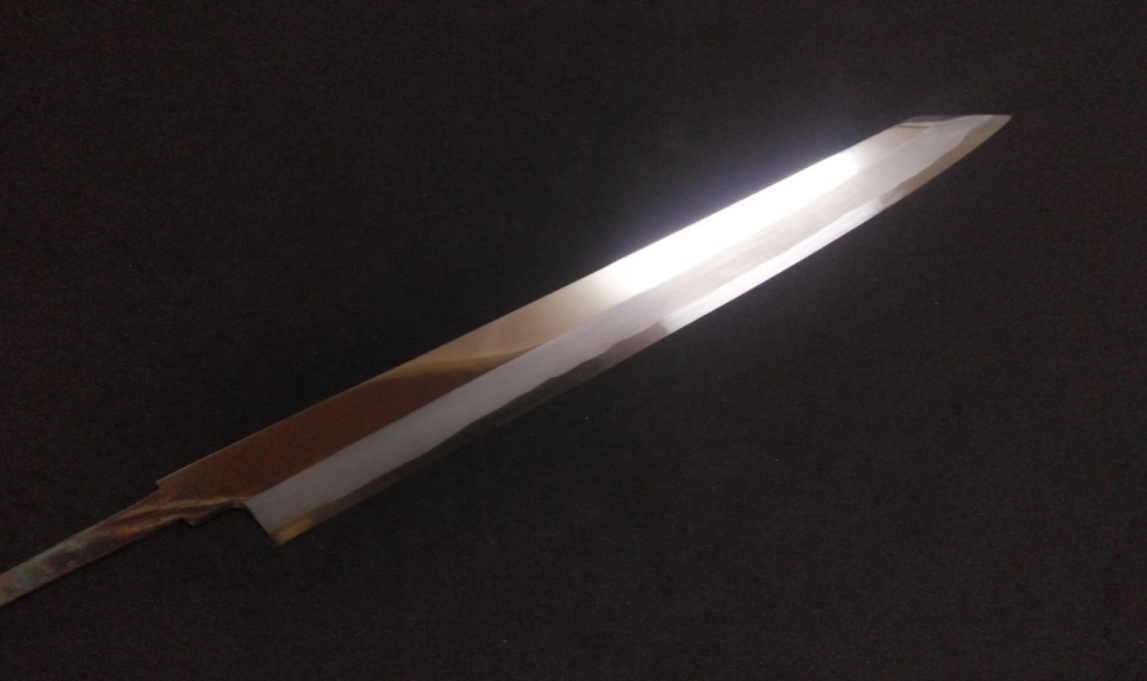
Why Many Product Photos Show Only the Blade
At KIREAJI, every knife is made to order in Sakai, Japan. Photos show the blade before the handle is attached, allowing artisans to perfect the balance and edge for your specific order. Your knife arrives fully finished — tailored just for you.

Global Delivery from Sakai
Across the world, discerning cooks seek authentic Japanese knives from Sakai — Japan’s legendary knife-making city with over 600 years of tradition.
At KIREAJI, we work alongside master artisans in Sakai to fulfill that desire, shipping genuine handcrafted knives directly from the workshop to kitchens worldwide.
Shotaro Nomura – Master Sharpener of Sakai City
-
Over Six Decades of Expertise
Since starting his career in 1962, Shotaro Nomura has dedicated his life to the art of Japanese knife sharpening. Under the mentorship of the renowned sharpener Mr. Ino—a master craftsman of the Showa era—Nomura mastered every stage of the sharpening process, from rough grinding and final honing to shingo-dashi (edge forming), buff polishing, and wooden polishing. His work has defined the standard for premium Sakai knives used by top chefs across Japan.
-

Certified Traditional Craftsman
In 1988, Nomura earned the title of Traditional Craftsman, a rare honor that acknowledges his exceptional skill and contribution to preserving Sakai’s cultural heritage. His dedication ensures that the techniques passed down through generations continue to thrive in the modern era.
-
A Sharpening Technique Like No Other
Nomura’s sharpening method is designed not only for initial beauty but also to enhance with age, allowing users to appreciate the knife’s performance and elegance more deeply over time. Each blade he finishes reflects the philosophy inherited from his mentor: “Even if it’s just one, make it a masterpiece.”
-

Passion, Precision, and Perseverance
Now in his 80s, Nomura still works with the same meticulous care and focus that has defined his career. Every order he fulfills is approached with the highest level of craftsmanship, ensuring that each knife leaving his workshop is worthy of the Sakai name.
-
Knives That Embody Tradition and Modernity
Owning a knife sharpened by Shotaro Nomura means more than possessing a tool—it means holding a piece of Sakai’s living history. His blades offer unrivaled sharpness, durability, and elegance, meeting the needs of modern chefs while preserving the essence of a centuries-old tradition.
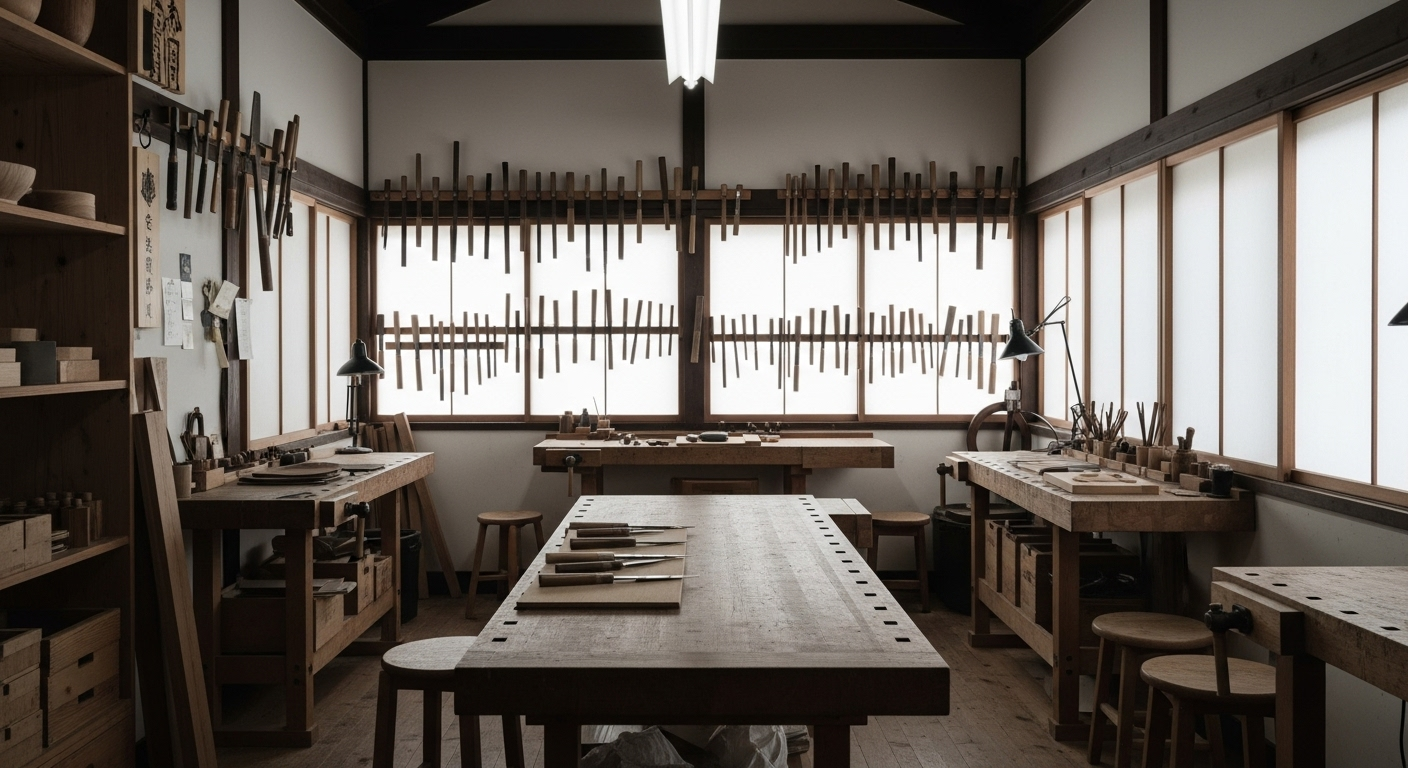

The Master Craftsmen of Sakai Uchihamono
In Sakai, centuries-old techniques are carried forward by government-certified Traditional Craftsmen. Each knife is not just a tool but a living symbol of tradition, precision, and spirit—kept alive through their hands.
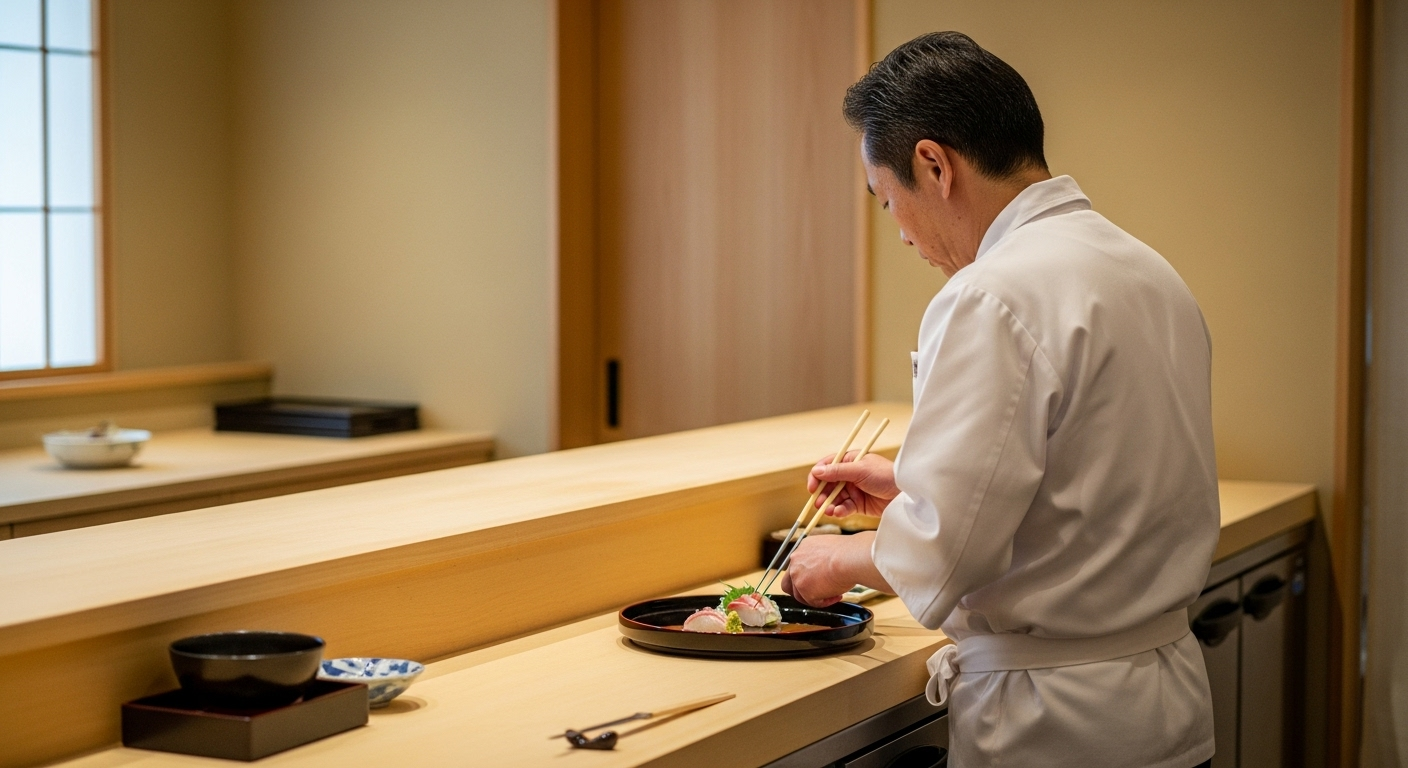
Why Do 98% of Japan’s Chefs Trust Sakai Knives?
For over 600 years, Sakai has perfected a unique craft where each stage—forge, sharpen, finish—is mastered by specialists. This tradition makes Sakai the birthplace of Japan’s most trusted knives.
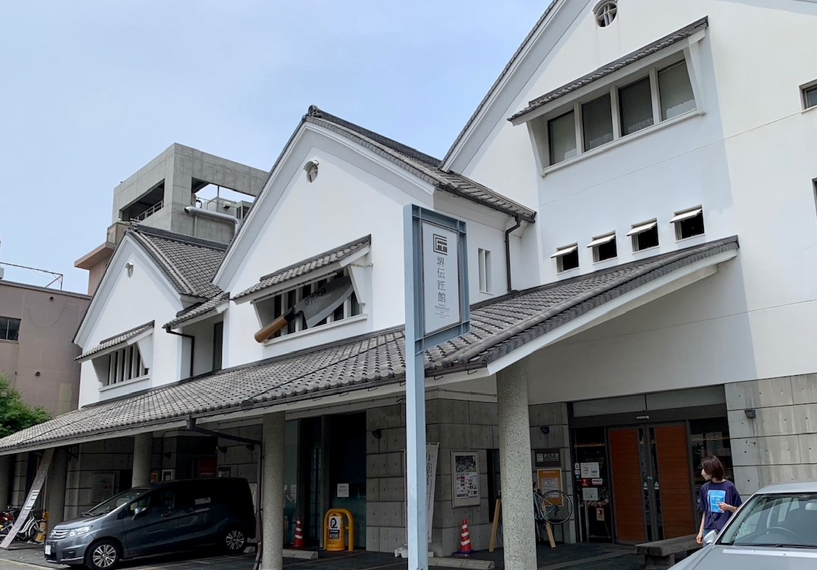
The 98% Statistic: More Than a Number
According to the Sakai Tourism Bureau, “98% of Japanese chefs use Sakai knives.” This figure isn’t just a claim—it reflects the deep trust chefs place in Sakai’s centuries-old craftsmanship.

Sakai’s Dwindling Masters: A Legacy at Risk
Once the heart of Japan’s finest cutlery, Sakai now has only a handful of blacksmiths left. With rising competition and fading interest among the young, new markets and fresh apprentices are vital to survival. Supporting these craftsmen means safeguarding a 600-year cultural legacy.
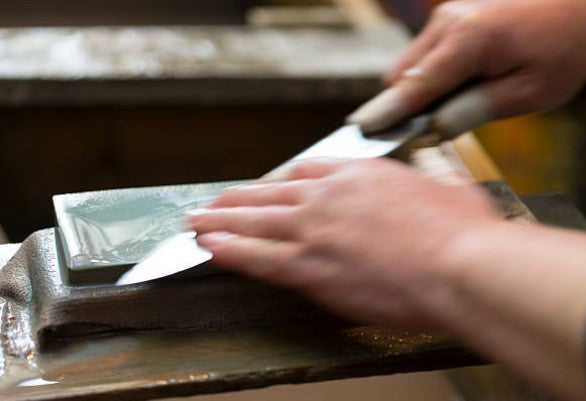
The Soul of Craftsmanship
-
Purity is the Driving Force Behind Mastery
For us artisans, “purity” represents sincere dedication—to the materials, to the techniques, and to the craft itself. It is never about being flashy or loud. Instead, it is about facing the steel before us, shaping it, polishing it, and perfecting it. Through this repetitive process, we discover both joy and wisdom.
-
Times may change, and technology may advance, but the artisan’s pure curiosity and determination remain constant. This unwavering spirit is what allows us to keep moving forward, step by step, without compromise.
-
Even in the smallest blade of a handcrafted knife, we envision the moment when someone holds it and feels, “This is the one.” That moment of recognition is both our pride and our greatest joy.
-
Our knives are born with the hope that they will add warmth and color to daily life—whether in the kitchen or beyond. If they can enrich someone’s world, even just a little, then our work has meaning.
-
To master a single thing with pure devotion—that is the essence we hold dear, now and always.
How Japanese Knives Are Made: The Sakai Tradition
VIDEO PROVIDED: JAPAN TRADITIONAL CRAFTS AOYAMA SQUARE (YOUTUBE)
-
Sakai Forged Blades — Six Centuries of Unrivaled Craftsmanship
Loved by chefs around the world and trusted by 98% of Japan’s top culinary professionals, Sakai knives are more than tools—they are the living legacy of over 600 years of master craftsmanship.
-
At KIREAJI, we work directly with the Shiroyama Knife Workshop in Sakai, Japan, ensuring every blade is hand-forged, finished to perfection, and shipped straight from the workshop to kitchens across the globe. No middlemen. No mass production. Only authentic, artisan-made knives, crafted to elevate your cooking for a lifetime.


